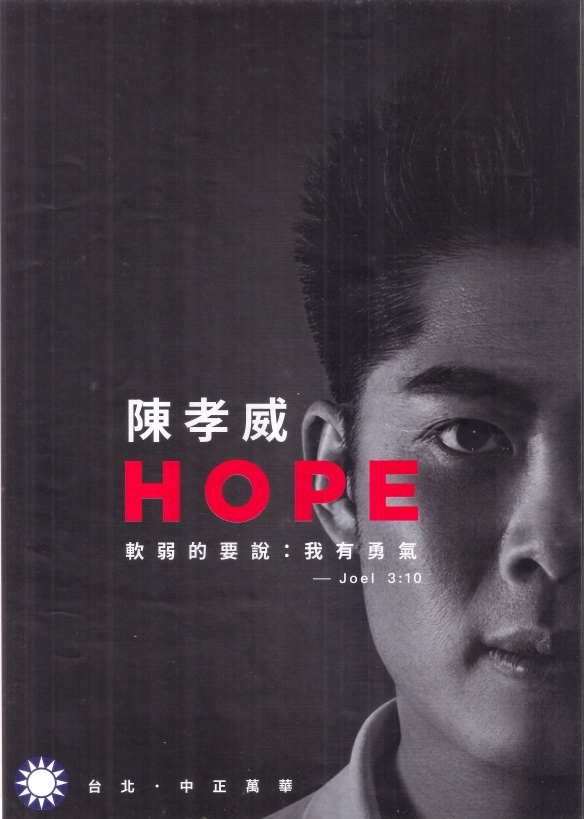I thought this was quite a creative campaign flyer from KMT Taipei city council candidate Wayne Chen (陳孝威).

It has quite simple messaging, with his name, the word “HOPE” in English and then a quote from the Book of Joel (3:10):
軟弱的要說:我有勇氣
Let the weak say, I am strong
This phrase from the Book of Joel is used as a prophecy of God’s wrath against the enemies of the Israelites. This can be construed as an almost comical positing of the Kuomintang (KMT) as the “children of Jerusalem,” and, by extension, the Democratic Progressive Party (DPP) are presumably their enemies who “cast lots for My people, and have given a boy for a harlot and sold a girl for wine.” More generally you can see the phrase as a reference to the KMT’s current political straits after a massive electoral defeat in the Taipei mayoral elections and the presidential election, and much of their capital having been confiscated by the DPP’s independent Ill-gotten Party Assets Settlement Committee. The line quoted is preceded by the line “Beat your plowshares into swords and your pruninghooks into spears”, so I guess Ko Wen-je should prepare for war.
To be fair, he also quotes Helen Keller, along with the word “UNITY” in one of the other campaign flyers featured on his Facebook Page:
一己之力有限 一起之力無限
Alone we can do so little; together we can do so much
Although he’s also peppered his Facebook Page with a few other Biblical quotes, it also features him in a video which suggests he’s not as bellicose as suggested above (maybe he won’t sell the sons and daughters of the DPP “to a people far off”):
This is not an endorsement.


